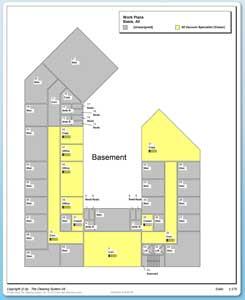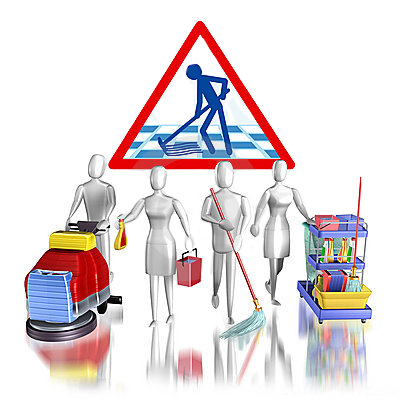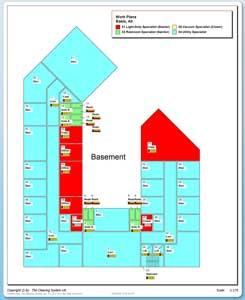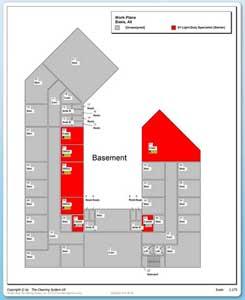
Self Direction:
The Starter will communicate to the Closer a variety of data which may alter the duties of the closer during the shift.
Manager’s Role/Inspect What You Expect:
The managers’ role is to maintain a constant inspection process.
Benefits:
- All employees are actively involved in the system
- Training time is reduced by 50% - 75%
- Employees are more effective
- System process leads to productive discipline
- Quality improvements generate from:
- Strict scheduling
- Effective inspection
- Simplified work routines
- Self-directed specialists
- Back pack technology
- Productivity is increased by 15% - 40%
Zone Cleaning:
- Within a given area of a building an employee performs all duties related to cleaning. These duties generally include trash removal, dusting, toilet cleaning, polishing, sweeping, mopping, vacuuming and other duties as assigned
Drawbacks:
- Employee must be trained in all functions
- Supervision is difficult and problems keep re-occurring (i.e. toilet tissue/towels and trash missed, dusting inconsistent)
- A substantial inventory of equipment must be provided for each zone cleaner
- Certain functions get overlooked (i.e. zone cleaner is tired and behind schedule, so they cut short the last duty which is vacuuming or restrooms)
- Zone cleaning very difficult to measure
A variety of personal systems exists which make substitution very difficult
Critical Focus:
- Know your cleanable square feet
- Know the cleaning requirements for all surfaces and furnishings
- Know the actual cleaning frequencies being performed currently
- Know your production capacity
- Determine accountability
- Expect to train
- Inspect what you expect!
Team Cleaning = Specialist Cleaners

Discover More on Team Cleaning

Team Cleaning Basics

The Cleaning System & Team Cleaning

Zone Cleaning or Team Cleaning?



